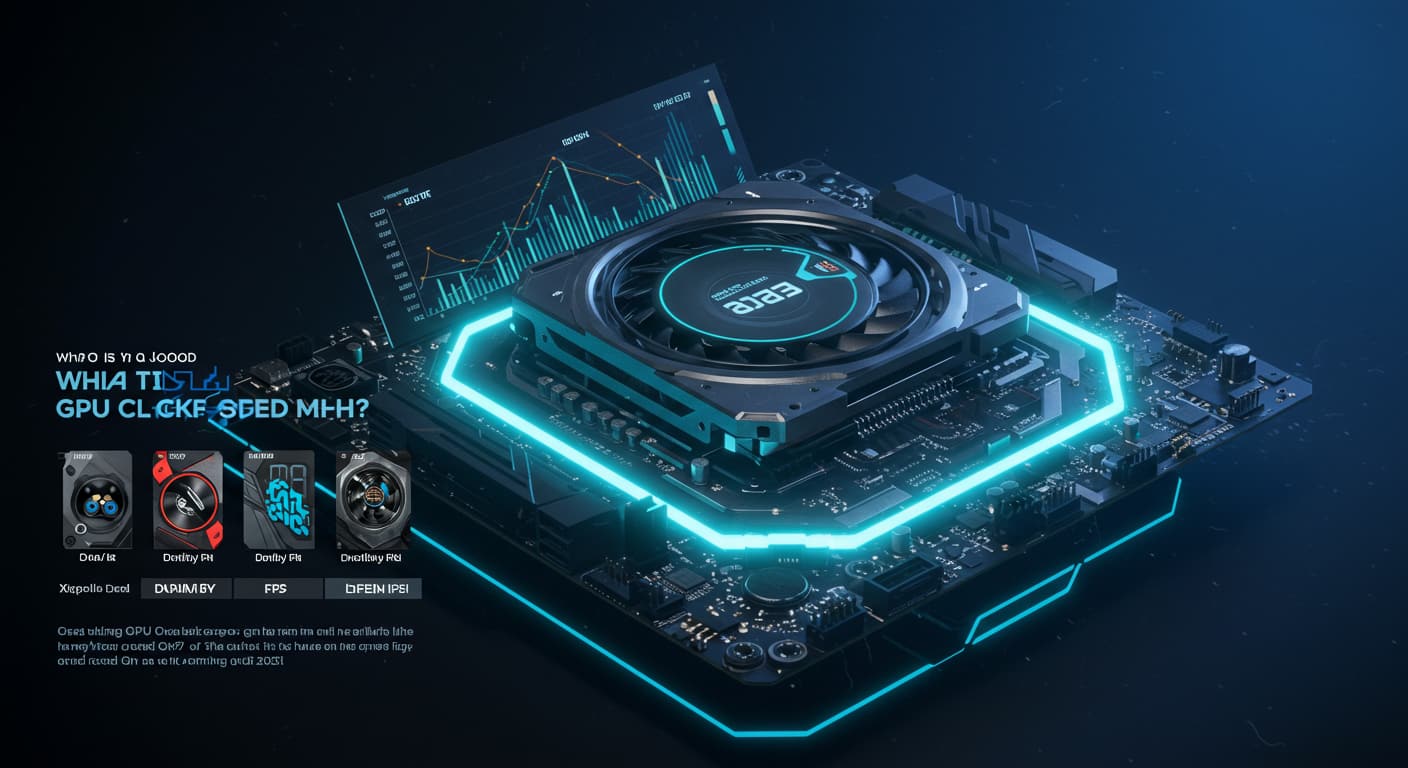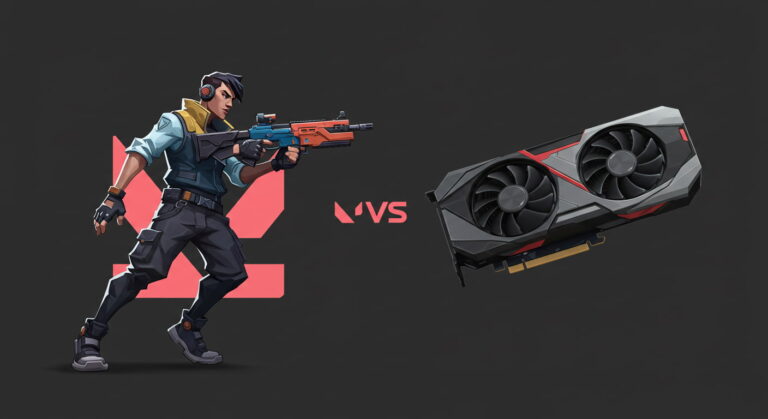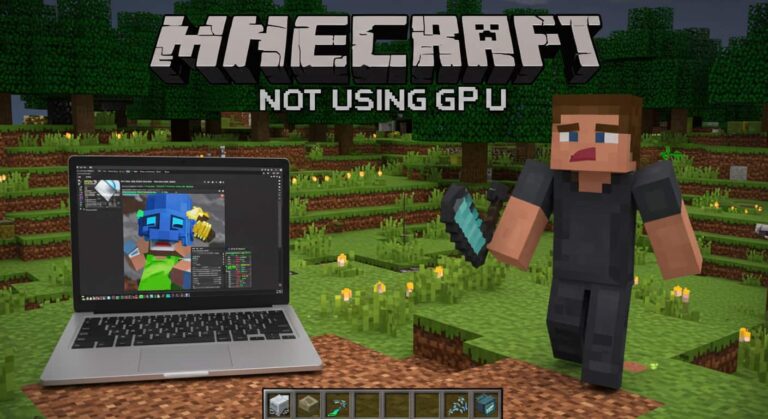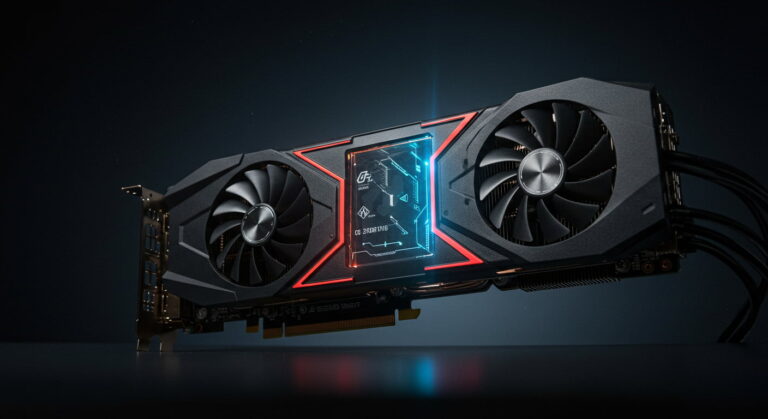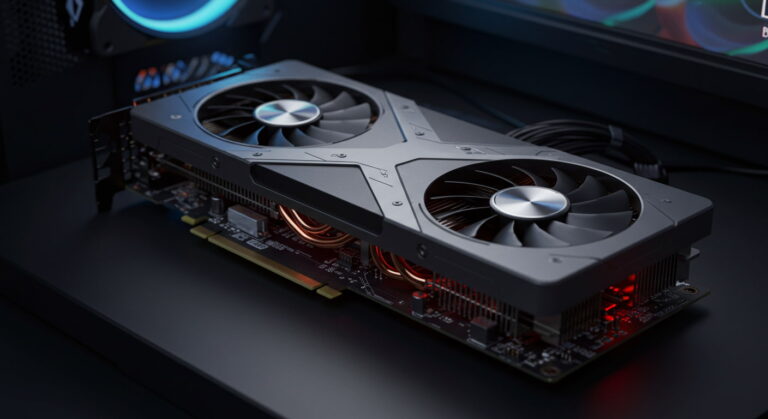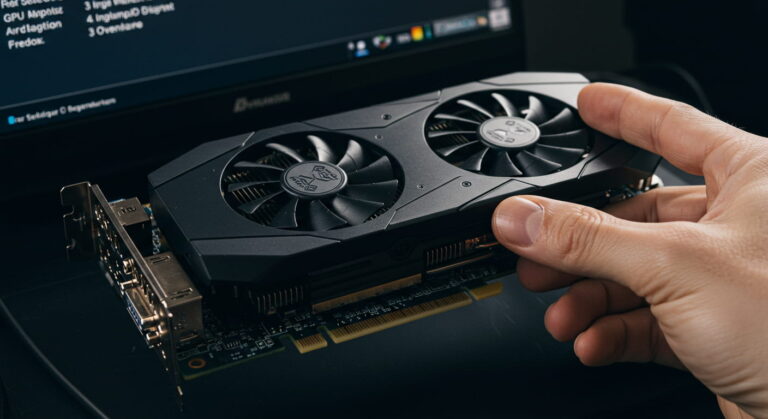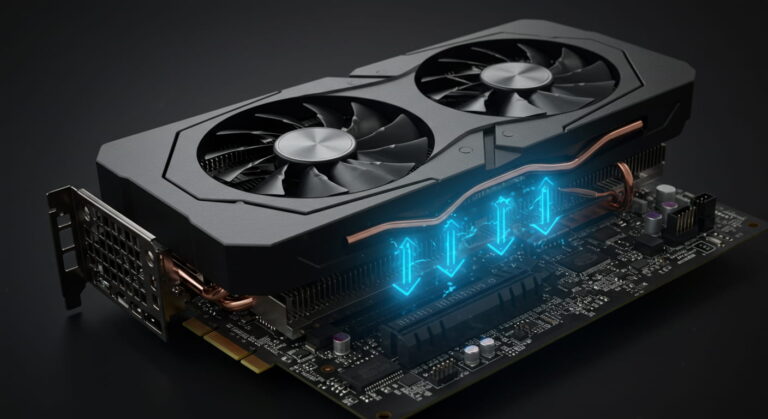What is a Good GPU Clock Speed MHz?– Full Gaming Guide 2025!
Graphics cards (GPUs) have become one of the most important components in gaming, video editing, 3D rendering, and even artificial intelligence. When people search for a new GPU, one of the most common specifications they see is GPU clock speed measured in MHz. But the question is: what is a good GPU clock speed MHz, and does it really matter for performance?
In this detailed guide, we will break down GPU clock speeds, explain how they affect gaming and productivity, compare normal vs high-end clock speeds, and answer the most frequently asked questions. By the end, you’ll know exactly what clock speed is good for your needs.
What is GPU Clock Speed in MHz?
GPU clock speed refers to how fast the cores of your graphics processing unit (GPU) operate. It is measured in megahertz (MHz), meaning millions of cycles per second.
- Core Clock → The base speed at which the GPU operates.
- Boost Clock → A higher speed the GPU can reach temporarily under heavy loads.
For example, a GPU with a base clock of 1500 MHz and a boost clock of 1900 MHz can run at 1500 MHz normally but will automatically increase up to 1900 MHz in demanding situations.
GPU Clock Speeds – What Do They Translate to in Games?
In games, GPU clock speed directly impacts:
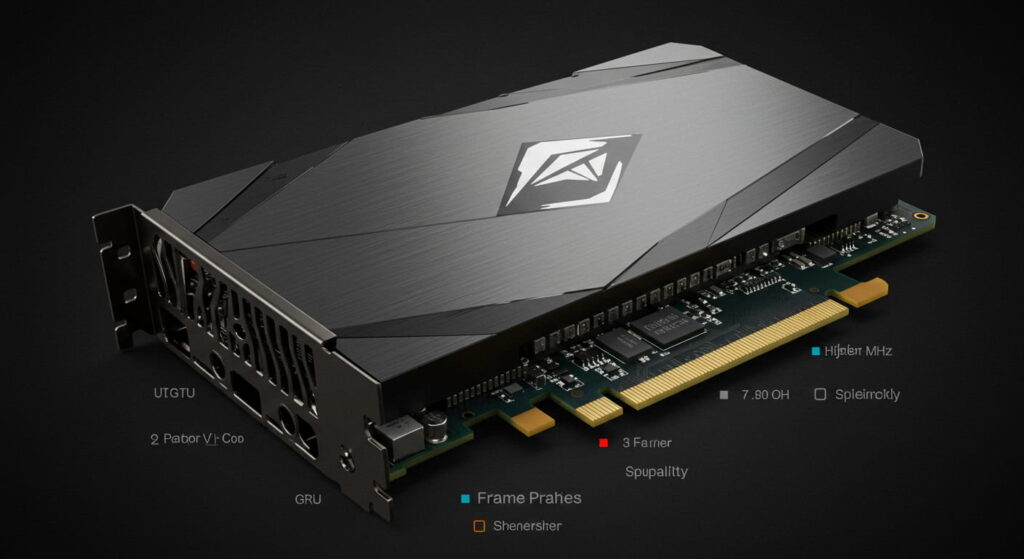
- Frame rates (FPS): Higher MHz often means smoother performance.
- Graphics quality: A faster GPU can handle higher resolutions and better textures.
- Responsiveness: Games load and render frames quicker with higher clock speeds.
However, clock speed is not the only factor. Architecture, VRAM, CUDA cores, and memory bandwidth also affect performance.
What is Normal GPU Utilization and Core Clocks?
A healthy GPU runs at different speeds depending on workload:
- Idle/Desktop work: 300–800 MHz
- Casual gaming: 1200–1700 MHz
- High-end gaming: 1800–2500 MHz
- Overclocked GPUs: 2500–3000+ MHz
If your GPU is always at 100% utilization with clocks maxed out, it could mean:
- The game is very demanding.
- Cooling isn’t efficient, causing thermal throttling.
- Drivers need updating.
Also read: GPU Not Showing Up in Device Manager? Causes and Fixes!
What MHz Should My GPU Be?
The ideal GPU clock speed depends on your purpose:
- Basic gaming (1080p): 1200–1600 MHz
- High-performance 1440p/4K gaming: 1800–2500 MHz
- Professional video editing/rendering: 1700–2300 MHz (but VRAM is equally important)
- Enthusiast overclocking: 2500–3000 MHz+
Is 1500 MHz GPU Clock Speed Good?
Yes, 1500 MHz is good for entry to mid-level gaming. Many budget GPUs, especially older NVIDIA GTX and AMD RX series cards, operate around this speed. At 1500 MHz, you can comfortably play most esports titles (CS:GO, Valorant, Fortnite) at 1080p with medium settings.
Is 2500 MHz Good for Gaming?
Absolutely. 2500 MHz is considered a high clock speed and is common in modern high-end GPUs like NVIDIA’s RTX 40 series or AMD RX 7000 series. At this level, you can expect:
- Smooth 1440p and 4K gaming
- Higher FPS in AAA titles
- Better performance in VR and ray tracing
Would a Higher MHz on a GPU Always Mean Better Performance?
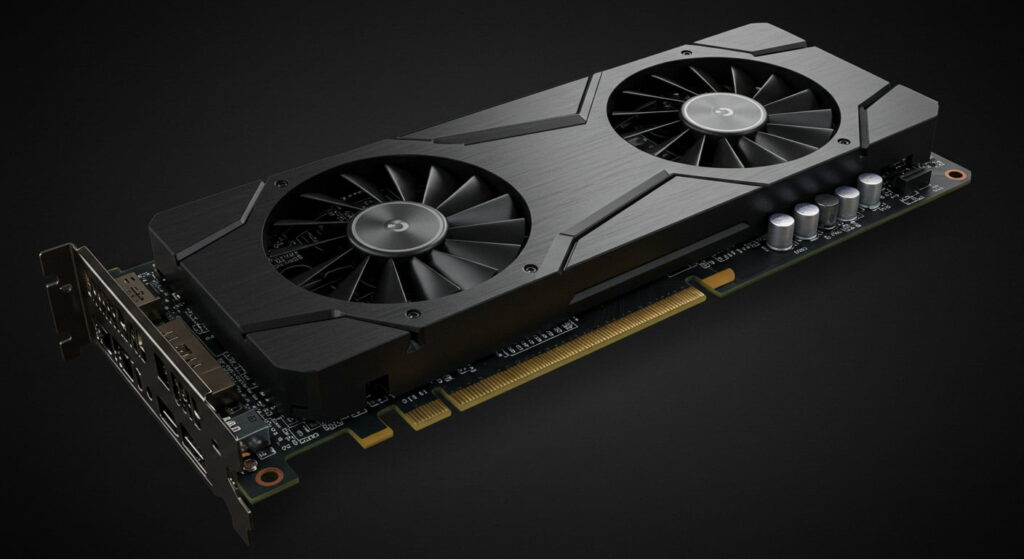
Not always. A GPU running at 2500 MHz may not outperform another GPU at 2000 MHz if the slower one has:
- More CUDA cores or Stream processors
- Faster VRAM and bandwidth
- More advanced architecture
In short, MHz matters, but it’s not the only factor.
What GPU Clock Speed is Considered Low-End for Gaming?
Generally, anything below 1200 MHz is considered low for modern gaming. While older cards like GTX 1050 Ti or RX 560 may run at these speeds, they struggle with modern AAA titles.
How High is Too High for GPU Core and Memory Clock Speed?
Going too high on MHz can cause:
- Thermal throttling: GPU lowers speed due to heat.
- Crashes/instability: Games may freeze.
- Shorter lifespan: Overheating reduces component health.
Safe overclocking usually increases speed by 100–300 MHz. Anything beyond should be done with caution and proper cooling.
GPU Memory Clock Speed vs GPU Core Clock Speed
- Core Clock (MHz): Directly affects rendering power.
- Memory Clock (MHz): Affects how fast VRAM communicates with GPU.
For gaming:
- Core clock impacts FPS.
- Memory clock impacts texture quality, resolution, and large open-world games.
Also read: amd gpu with intel cpu
Is a 7000 MHz GPU Memory Clock Good?
Yes, 7000 MHz memory clock is good for most mid-range GPUs. It allows fast communication between VRAM and GPU, which is especially useful in high-resolution gaming.
Is 6000 MHz GPU Memory Clock Enough for Gaming?
Yes, for 1080p and 1440p gaming, 6000 MHz is enough. However, for 4K gaming and VR, higher memory speeds (14,000 MHz effective on GDDR6X) are recommended.
Is 3600 MHz Good for Gaming?
This is often confused between system RAM and GPU VRAM.
- System RAM (DDR4/DDR5): 3600 MHz is decent for gaming PCs.
- GPU VRAM: 3600 MHz is considered low by today’s standards. Modern GPUs run at 6000–19000 MHz effective memory speeds.
Is it Bad if My GPU and Memory Clock are Max All the Time?
Yes, it could be a sign of:
- High background load or malware.
- GPU running at max even when idle.
- Improper power settings.
Solution:
- Check Task Manager for hidden apps.
- Update drivers.
- Enable adaptive power mode in GPU settings.
GPU Core Clock – Tips and Troubleshooting
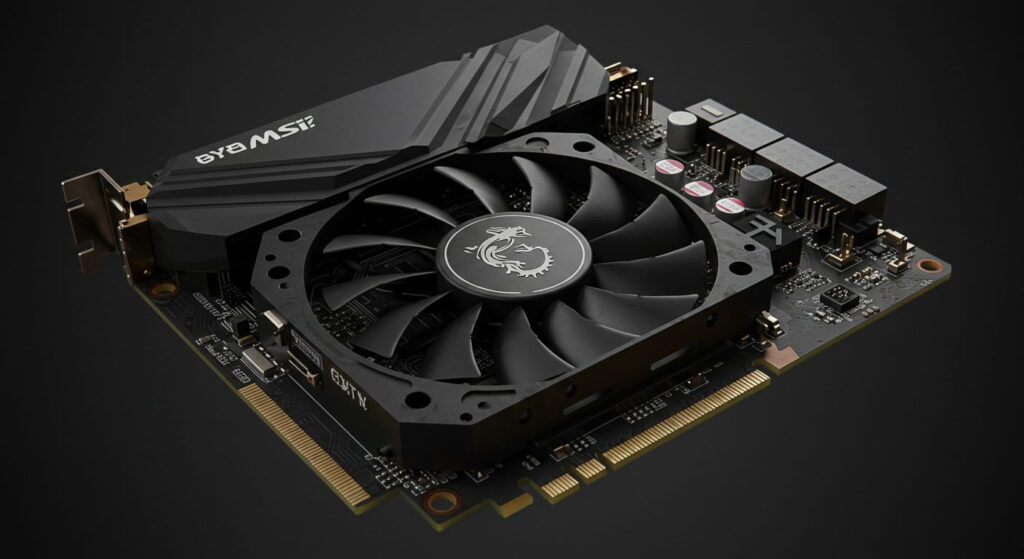
- Use monitoring tools like MSI Afterburner, GPU-Z, HWMonitor.
- If core clock is unstable, reduce overclock or improve cooling.
- Always check GPU temps (safe range: 60–85°C).
GPUs by GPU Clock Speed (2024–2025 Update)
- NVIDIA RTX 4090: ~2200–2600 MHz
- NVIDIA RTX 4070 Ti: ~2300–2500 MHz
- AMD RX 7900 XTX: ~2400–2600 MHz
- AMD RX 7600: ~1800–2200 MHz
- Laptop GPUs: Usually 1200–1800 MHz due to thermal limits
How to Overclock Your GPU to Boost Your Games’ FPS
- Download MSI Afterburner or similar tool.
- Increase clock speed by +50 MHz at a time.
- Run a benchmark or stress test.
- Stop when instability occurs.
- Keep temperatures under control with better cooling.
Also read: GPU Serial Number Lookup
GPU Clocks Going Higher Than Manufacturer’s Default – Is It Safe?
Yes, it’s safe. Many modern GPUs automatically boost clocks higher than advertised using GPU Boost technology (NVIDIA) or AMD’s SmartShift/Boost. As long as temps are under control, this is normal.
Factors That Affect GPU Clock Speed
- Cooling system: Better cooling = higher sustainable speeds.
- Power supply: Stable PSU prevents crashes.
- Drivers/software: Optimizations can improve efficiency.
Future of GPU Clock Speeds
- With AI workloads, efficiency matters more than raw MHz.
- Future GPUs may cross 3000–4000 MHz, but architecture and VRAM bandwidth will remain equally critical.
- Companies may focus more on power-per-watt rather than just higher MHz.
FAQs
1. Does GPU clock speed really matter for gaming?
Yes, it directly affects frame rates, but VRAM and cores also play a role.
2. Is higher GPU MHz always better?
Not always – architecture and memory also matter.
3. What is a safe temperature while overclocking?
Keep it under 85°C for long-term safety.
4. Can lowering GPU clock speed save power?
Yes, underclocking reduces power consumption and heat.
5. What’s the difference between GPU base clock and boost clock?
Base is guaranteed speed, boost is the maximum under load.
6. Is GPU memory clock more important than the core clock?
For gaming, core clock is more important, but memory clock helps in 4K/VR.
7. How do I check my GPU clock speed?
Use Task Manager, GPU-Z, or MSI Afterburner.
8. Can laptop GPUs reach high MHz like desktops?
Not usually; they are limited for thermal reasons.
9. What is the best GPU clock speed for 1080p gaming?
Around 1500–2000 MHz is enough.
10. Will future GPUs rely less on MHz and more on AI cores?
Yes, AI-accelerated cores may reduce dependence on raw MHz.
Conclusion:
So, what is a good GPU clock speed MHz?
- For casual gamers: 1500–1800 MHz is fine.
- For high-end gaming and 4K: 2000–2500 MHz works best.
- For professionals and overclockers: 2500–3000 MHz+ is ideal.
Remember, while clock speed is important, it’s not the only factor. Architecture, VRAM, CUDA cores, and cooling also determine how powerful a GPU really is. If you balance all these factors, you’ll have a GPU that delivers smooth, reliable performance.
Related post:
